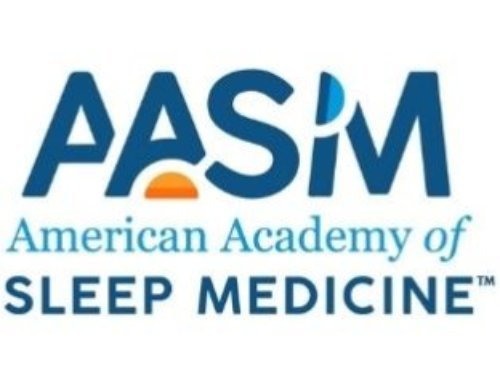Westchester, Ill. – A study in the Oct. 15 issue of the Journal of Clinical Sleep Medicine found that while a strict diet and exercise program may benefit obese patients with mild to moderate obstructive sleep apnea (OSA), it is unlikely to eliminate the condition.
Results show improvement in typical OSA symptoms including snoring, daytime sleepiness, impaired vigilance, poor quality of life and mood after the completion of a 16-week diet and exercise program. Weight loss was significant, with an average loss of 12.3 kg (about 27 pounds), representing 12.9 percent of baseline total body weight. Although weight loss reduced the average apnea-hypopnea index (AHI) by 25 percent from 24.6 to 18.3 breathing pauses per hour of sleep, the change was not statistically significant.
Principal investigator Maree Barnes, MBBS, sleep medicine practitioner and senior research fellow at the Institute for Breathing and Sleep at Austin Hospital in Victoria, Australia, said that the exercise program resulted in improved fitness and muscle strength, which is important in obese OSA patients; however, diet and exercise alone should not be relied upon to treat the condition.
“Although there was some improvement in sleep disordered breathing, it was not seen in all patients and was not proportional to the degree of weight loss,” said Barnes.
Twelve consecutive patients from the Institute for Breathing and Sleep who were newly diagnosed with OSA were included in the cohort study, and 10 completed the program. Participants had mild to moderate OSA, were obese with an average body mass index (BMI) of 36.1, were heavy snorers, had no significant comorbidities and were able to exercise. Participants had an average age of 42 years, and nine of 12 were female.
An initial evaluation was performed to assess sleep disordered breathing, cardiovascular risk factors, and neurobehavioral function prior to and following completion of the 16-week program. The program used a proprietary low-energy diet (Optifast®), and subjects participated in a hospital-based exercise schedule that included both aerobic and resistance training supervised by a physiologist and a physiotherapist. Subjects also completed questionnaires to assess subjective sleep quality, mood and quality of life.
One year after beginning the program participants were contacted by mail and asked about their current weight, ongoing exercise and diet, and whether they thought it would have been beneficial to have had a structured follow-up program. All but one participant who completed the program had regained some weight, but five of the 10 participants were able to independently maintain weight loss of at least seven percent. All participants said they had maintained an exercise program but that regular face-to-face contact would have assisted with ongoing adherence to a low-energy diet.
The AASM’s “Clinical Guideline for the Evaluation, Management and Long-term Care of Obstructive Sleep Apnea in Adults” recommends weight loss for all overweight OSA patients. However, weight loss should be combined with a primary treatment for OSA because of the low success rate of dietary programs and the low cure rate by dietary approach alone. The AASM recommends positive airway pressure (PAP) therapy as the treatment of choice for all severity levels of OSA.
A media fact sheet about obstructive sleep apnea is available from the AASM at https://www.aasm.org/resources/FactSheets/SleepApnea.pdf. Information from the AASM for patients and the public is available about OSA at http://www.sleepeducation.com/Disorder.aspx?id=7 and about CPAP at http://www.sleepeducation.com/CPAPCentral/
The Journal of Clinical Sleep Medicine (JCSM) contains published papers related to the clinical practice of sleep medicine, including original manuscripts such as clinical trials, clinical reviews, clinical commentary and debate, medical economic/practice perspectives, case series and novel/interesting case reports. In addition, the JCSM publishes proceedings from conferences, workshops and symposia sponsored by the American Academy of Sleep Medicine or other organizations related to improving the practice of sleep medicine.
For a copy of the study, “A Diet and Exercise Program to Improve Clinical Outcomes in Patients with Obstructive Sleep Apnea- A feasibility Study,” or to arrange an interview with an AASM spokesperson, please contact Kelly Wagner, AASM public relations coordinator, at (708) 492-0930, ext. 9331, or kwagner@aasm.org.
###




